Why is 'CAPTCHA', which indicates that you are not a robot, becoming more and more difficult?

When registering or using services on the Internet, you may be required to perform a test called
Why captchas are getting harder --YouTube
The computer always suspects, 'Isn't this user a robot?' ...
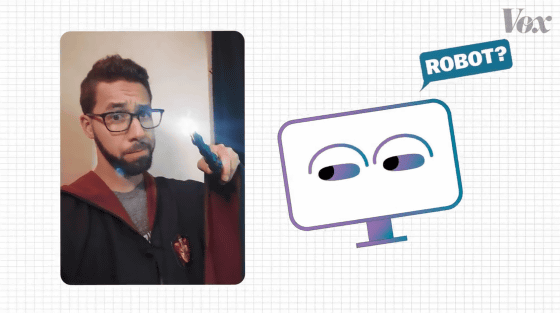
You will be asked for a CAPTCHA when you register for a fitness club.

Vaccine vaccination reservations and ...
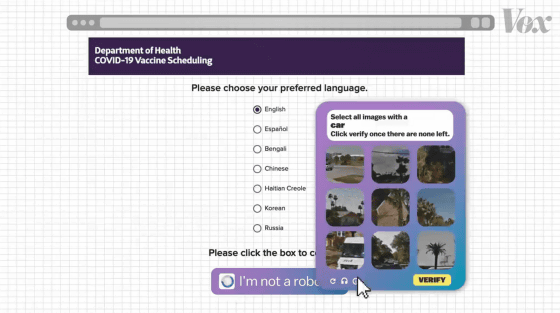
CAPTCHA when buying dumbbells.
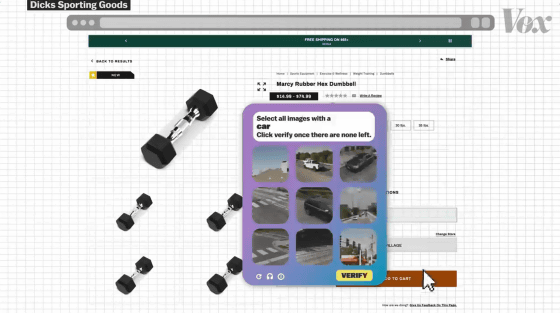
Many people are tired of being asked for CAPTCHAs everywhere.
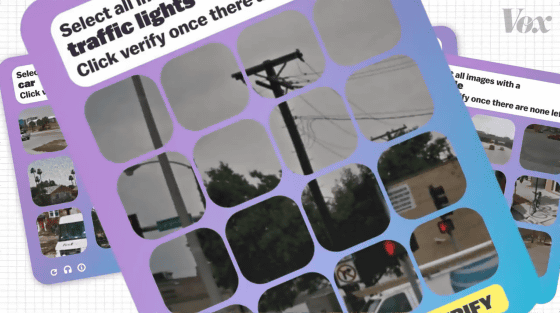
Furthermore, it doubles the tired feeling of being often caught by CAPTCHAs even though they are humans.
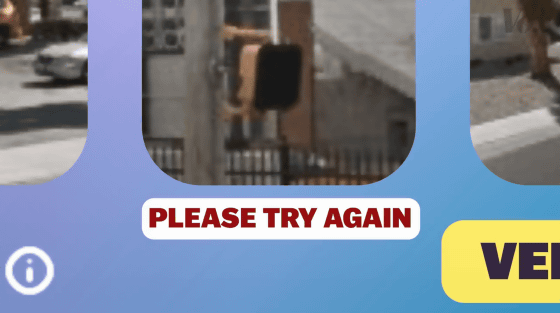
It is said that CAPTCHAs are becoming more difficult in recent years, and Vox interviewed 'the leading CAPTCHAs' behind the scenes.
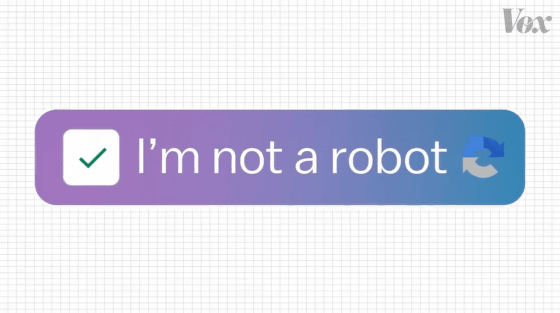
'CAPTCHA is' C ompletely A utomated P ublic T uring test to tell C omputers and H umans A part ( Completely Automated Public Turing test to tell computers and humans apart) 'is an abbreviation of' to explain and is ......
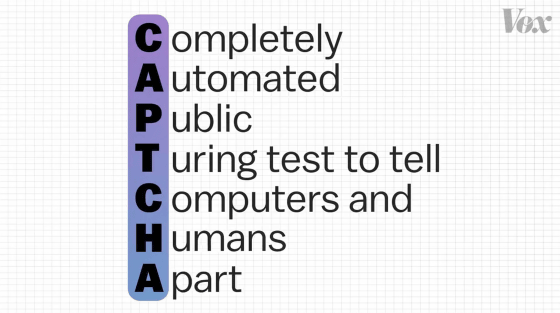

Ann decided to work on a CAPTCHA because she attended a lecture given by a senior researcher at Yahoo! during her doctoral course at Carnegie Mellon University. In the lecture, the senior researcher said, 'Malicious people are writing programs to get millions of email addresses to send spam emails, but it is difficult to prevent it,' Yahoo! has. He talked about the issues.
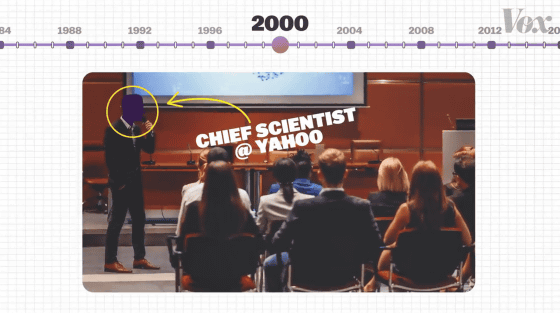
Upon hearing this issue, Anne thought, 'We need a test to distinguish between humans and computers.'
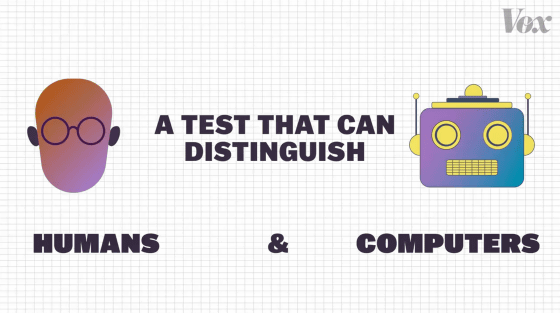
The 'test that distinguishes between humans and computers' must be able to pass by all humans regardless of age, gender, education, or language, but computers must be able to pass. However, since this test itself is operated by a computer, the computer for operation must be able to evaluate 'tests that cannot be passed by the computer'.
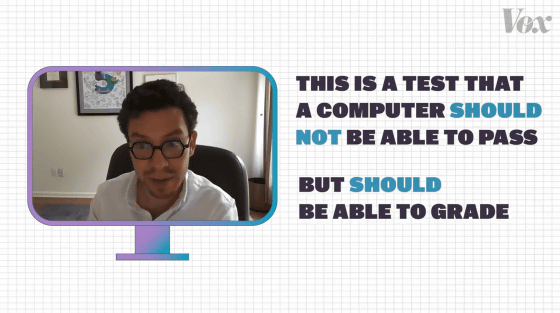
'This is a kind of paradoxical idea,' Anne said.
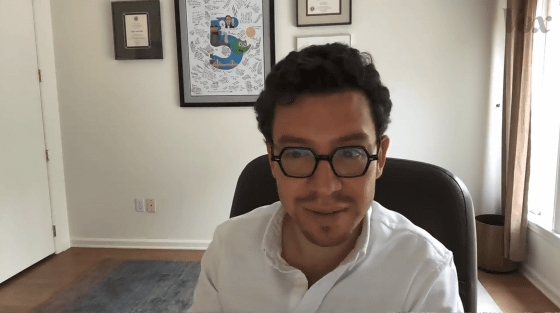
Eventually, Anne et al.'S research team came up with the idea that 'humans are very good at optical character recognition, that is, reading characters.'
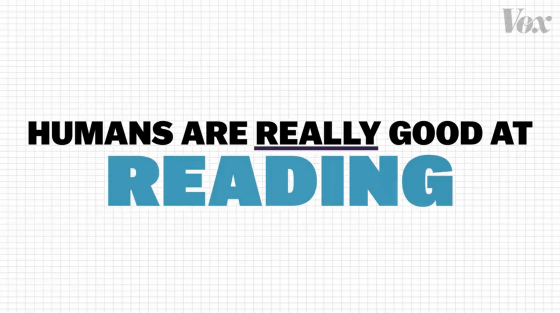
Humans can read letters under various lighting conditions and angles ...

It can recognize handwritten characters that are quite different in shape from the printed characters.
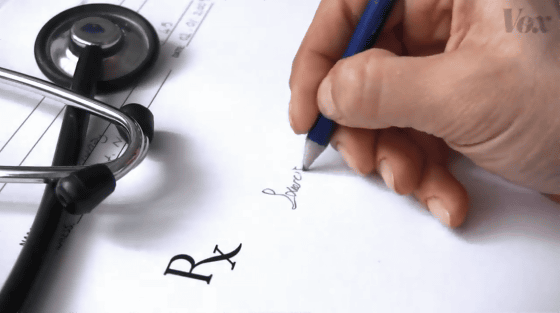
Many people have been training to read letters since childhood, so they have very good character recognition ability.

'It doesn't require any cleverness or understanding of how to spell it. It's a kind of pattern matching,' Anne commented. Computers at the time had a poor ability to distinguish characters, so tests that read distorted characters were able to distinguish between humans and computers with very high accuracy.
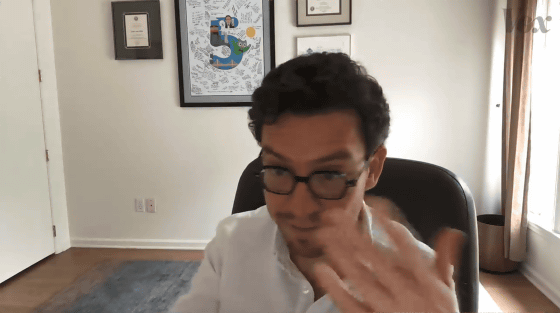
Programmers can also teach the correct answer to the computer that runs the test. Computers that didn't know the answer, on the other hand, couldn't identify the distorted characters.

Thus, the CAPTCHA code developed by Anne and others was passed to Yahoo !, which immediately started using CAPTCHAs on the registration page.
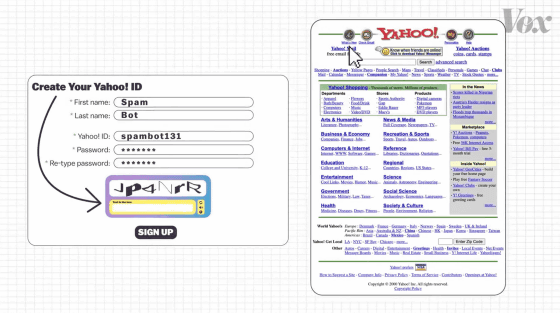
CAPTCHAs have been used millions of times a day in just a few weeks after implementation.
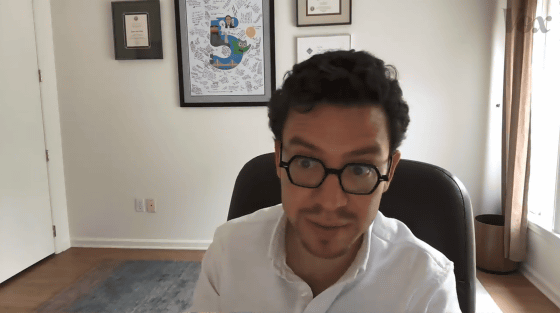
In fact, CAPTCHAs worked well and identified humans and computers.
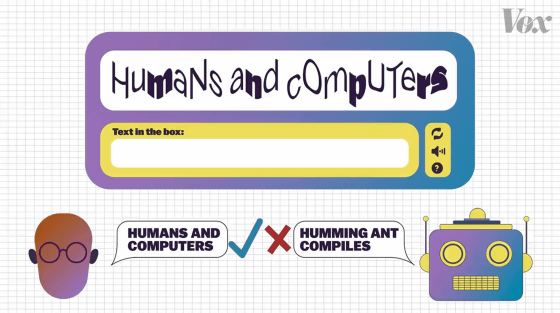
On the other hand, computers also analyzed human answers and gradually improved their ability to identify characters.
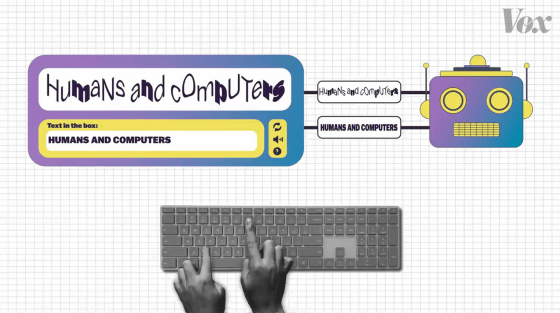
Then, in 2005, '
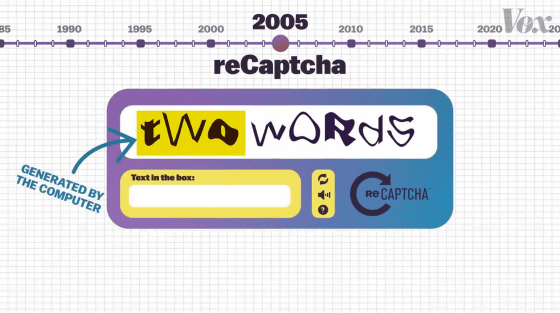
The second word was
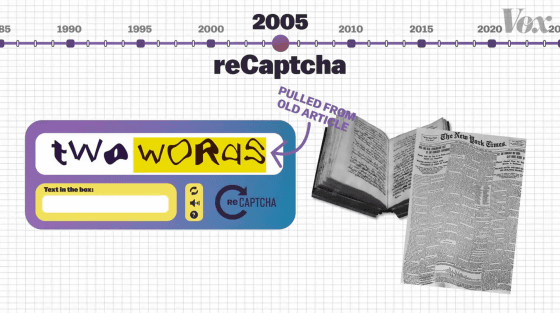
In reCAPTCHA, if the first word is correct, the second word is also considered correct ...
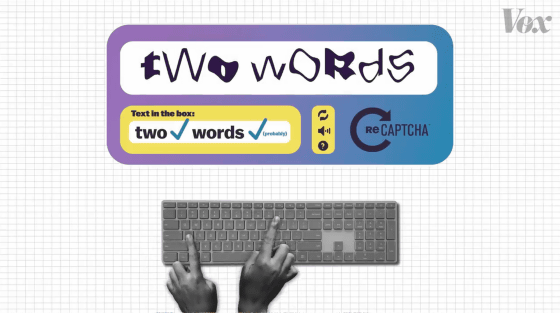
Compare the test results of multiple people to analyze the correct answer for the second word.
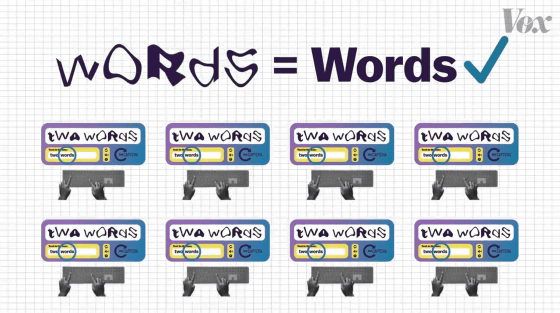
With this system, it has become possible to digitize New York Times articles that were not previously digitized as text. People all over the world used reCAPTHCA to archive a year's worth of the New York Times in just one day.
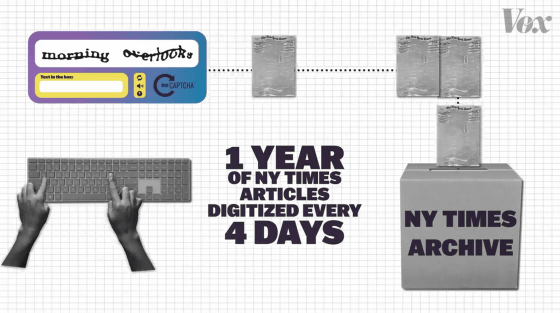
Google acquired reCAPTCHA in 2009 and started using reCAPTCHA to create archives of scanned books and newspapers.
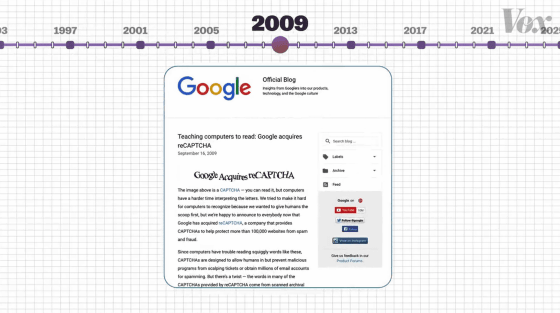
On the other hand, the repeated use of reCAPTCHA has also created a 'data set of distorted characters that is difficult for computers to identify', and computers can now learn using this data set.
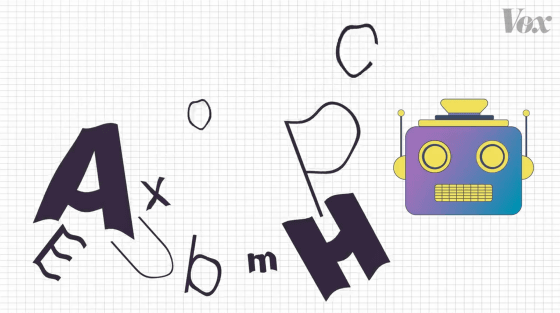
A test conducted by Google in 2014 showed that humans can read the most distorted characters at 33%, but computers at 99.8%, showing that computers can identify characters with greater accuracy than humans.
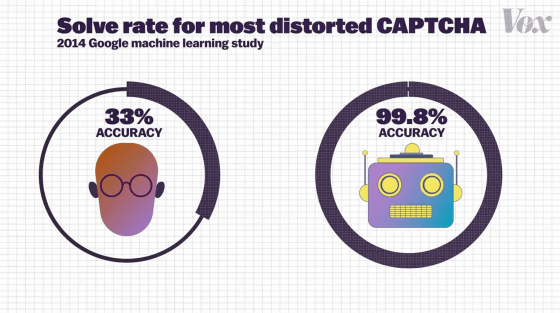
And in 2014, Google announced a new version of CAPTCHA called 'reCAPTCHA v2'. reCAPTCHA v2 is a way to use images instead of text ...
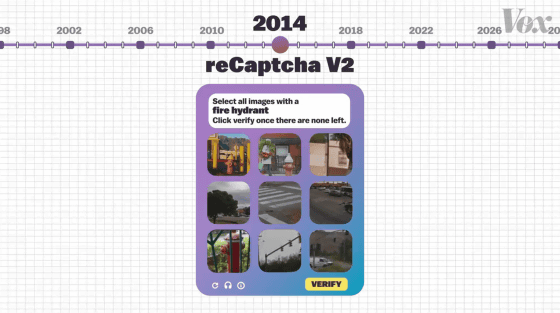
Google used reCAPTCHA v2 to let humans identify real-world objects and trained computers with the resulting datasets.
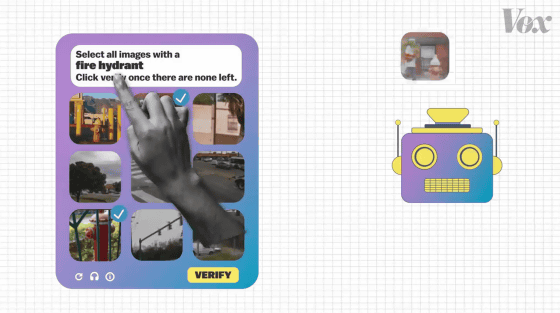
ReCAPTCHA v2 often asks you to identify fire hydrants, traffic lights, pedestrian crossings, etc. because Google uses this data to develop self-driving cars and improve Google Maps.
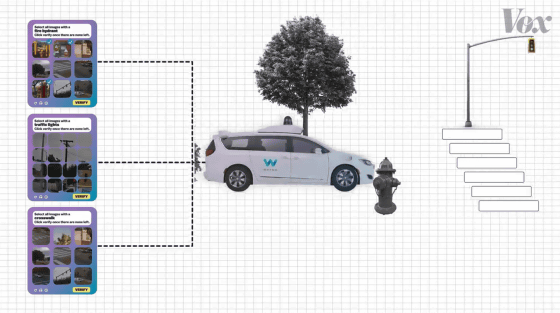
However, computers are also clearing new identification methods, and new tests are required to be introduced.
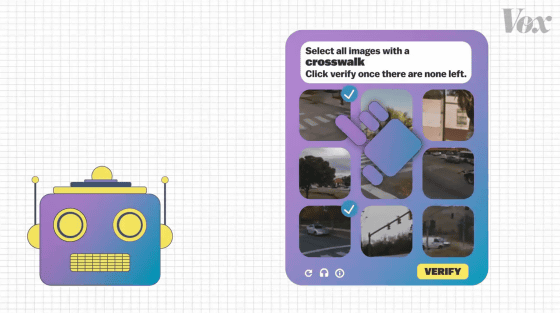
Then, 'reCAPTHCA v3' was developed to identify human beings from user behavior without using tests.
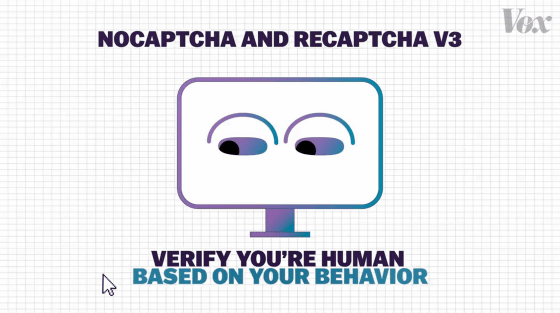
reCAPTHCA v3 tracks user behavior in the background without testing the user, so users don't even know they're 'human or robot'.
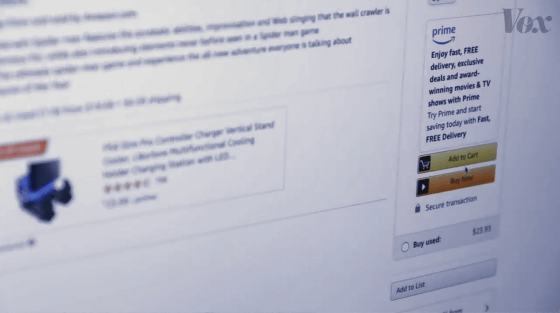
If it is judged from the time to read the text and the speed of clicking that 'this user is likely to be a robot', reCAPTHCA v3 will issue a standard image identification test or require two-factor authentication.
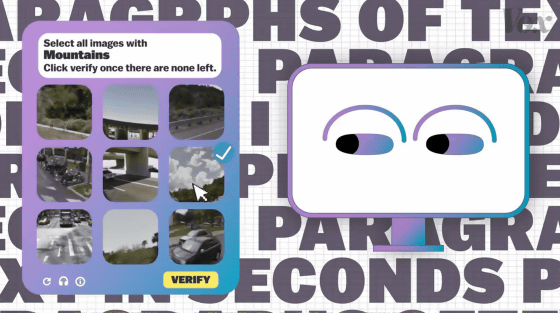
'If you use the web, you're basically being tracked,' Anne said, although it may be creepy to be monitored without your knowledge, but much more than solving puzzles one by one. Claims to be excellent.
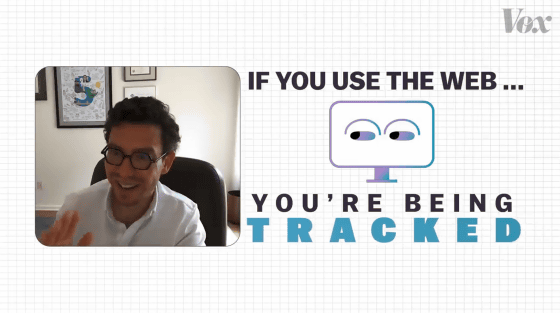
However, even reCAPTHCA v3 is not an absolute solution, and Anne commented that his personal belief is that 'computers will eventually be able to do everything humans can do.' Therefore, it is possible that someday it will not be possible to distinguish between humans and robots.
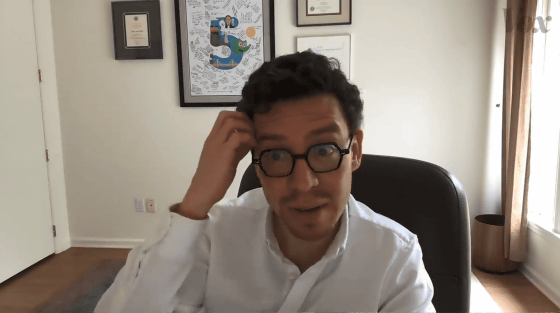
Related Posts:







